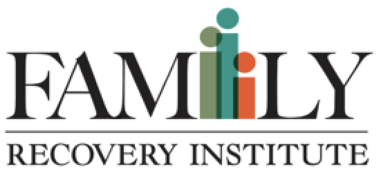Families
Healthy families are key to a vibrant community. Nurturing parents encourage children’s natural curiosity and growth, thus preparing them for the learning and social interactions that school provides. They take a keen interest in their children’s progress, providing the care and attention young children need to thrive. Healthy families make possible the wealth of opportunities a community can offer.
While we are all aware of the benefits of a healthy lifestyle for physical well-being, the importance of sound mental health is often overlooked, yet it is vital to all aspects of a productive and fulfilling life. It’s important for parents to realize that they can take steps to safeguard their families’ emotional health and well-being.
Mental health resembles physical health in several important ways. One is that no one is immune from the development of a mental health condition. In fact, 50% of all Americans will experience at least one such condition in their lives. Another parallel is that timely, expert care can make the difference in both the duration and severity of the condition. While many emotional problems will not just “go away,” but worsen, prompt attention can often resolve an issue before a problem even develops. Finally, mental health, like physical health, exists on a continuum: Some conditions are severe and chronic, while others are temporary and mild.
All children have some emotional issues from time to time, perhaps anxiety over a change, such as a new school or a change in the family, perhaps shyness or trouble separating from parents. It is important to realize that such situations are normal, and that extra reassurance and attention can help a child regain equilibrium. When issues such as these do not easily resolve, it is best to seek professional advice (for example, from your child’s teacher or pediatrician, or a psychotherapist) before behaviors become entrenched or lead to other difficulties.
Parents’ own emotional health plays a large role in raising healthy children. Some adults find that their own childhood experiences, perhaps past abuse or a difficult family, can interfere with their ability to be as present with children as they would like. Anger and conflict management may pose a challenge, as can mood disorders, such as anxiety. In recent years, maternal depression has received increasing attention. Mothers and fathers need to realize that taking care of their own emotional health is an integral part of caring for their children. If you have concerns, don’t be afraid to seek professional help.
It is often in the school setting that the first signs that a child may be struggling will appear. These may include slipping grades, difficulty getting along with others, bullying, or other acting out behaviors. Addressing these issues as soon as possible is important. Talk with school personnel, or seek other professional advice.
It is not uncommon for children’s difficulties at school to be a symptom of problems in the home, such as parental substance abuse, family conflict or stress. For many families, the solution to their children’s behavioral issues is to take steps to create a healthier, more nurturing home environment for all members.
Families of all descriptions may benefit from the assistance and support that counseling can provide. Parents, for example, may experience problems with boundary or other parenting issues and wish to consult professionals on ways to address them. Couples may find that seeking marital counseling helps them establish better communication, ending cyclical conflicts. Parents concerned about their children’s progress in school, their behavior at home, or conflicts between siblings may choose family counseling. Among common reasons families seek therapy are difficult transitions, for example, a divorce or a major loss, such as death.
Counseling can help to strengthen families in many ways. Sometimes individual therapy for a parent or child might be indicated, other times the family as a whole can learn new and healthier interactions. Most issues respond well to treatment, especially if help is sought right away.
CIP welcomes new clients for assessment and counseling throughout the year. To learn more, call (415) 459-5999 x 102.









